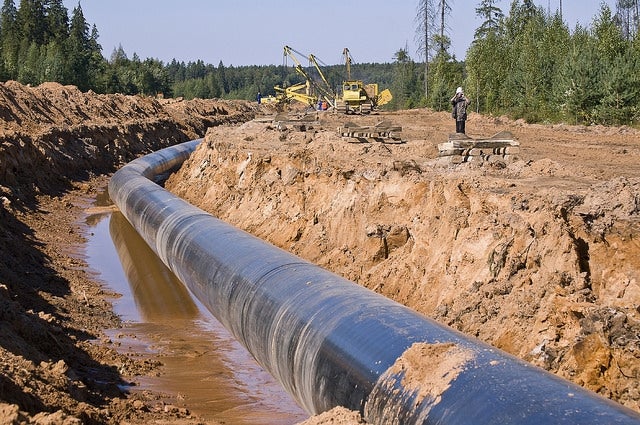National Grid and Eversource Energy this week withdrew applications for long-term gas capacity contracts in the wake of a Supreme Judicial Court decision, but a new letter to policymakers reinforces the utilities’ commitment to the Access Northeast pipeline project.
The state’s top court ruled last week that the Department of Public Utilities does not have the authority to approve long-term contracts by electric distribution companies for new natural gas infrastructure financed by ratepayer surcharges. In light of that decision, both major Bay State utilities and Access Northeast partners withdrew their applications to DPU for contracts critical to the financing of the pipeline.
But in a letter to “Valued New England Policymaker” obtained by the News Service, Spectra Energy and senior executives with both Eversource and National Grid said the court’s decision is “behind us” and has not weakened their commitment to “solving New England’s energy challenge.”
The companies have permit applications pending in other New England states, and are working to develop a new financing strategy in Massachusetts.
“Our path forward is clear and our mission to reestablish the Massachusetts contribution is full-speed ahead. We are confident that, ultimately, the interests of New England’s consumers will prevail with desperately needed gas supply made available by Access Northeast,” read the Aug. 23 letter signed by Spectra’s President of US Transmission Bill Yardley, Eversource Executive Vice President Lee Olivier and National Grid Senior VP of US Development John Flynn.
The list of policymakers in the region who received the letter dated Aug. 23 was not made available to the News Service.
The Access Northeast project would expand natural gas capacity along 125 miles of the existing Algonquin Gas Transmission pipeline system, cutting across several mid-Atlantic and New England states. The three partners stressed that “the status quo is not sustainable” and new renewable resources like off-shore wind and hydropower “will not be available at the levels needed to meet the region’s energy demand for many years to come.”

